Sacrifice, Service, and the Stories We Tell
We Remember Them: Memorial Day Across Mount Desert Island
The Bar Harbor Story is generously sponsored by Acadia Shops.
MOUNT DESERT ISLAND—All the way back in 1868, a young girl wrote a New York official a note. In it, she asked for the city official to place a garland on the grave of an unknown Confederate soldier. Her own father, she said, was buried all the way in Georgia. She wanted, she hoped, she prayed that “some other little girl” would do the same for her own dad’s grave.
Three years before that, in 1865, 10,000 Black Americans who had once been enslaved came to Charleston, South Carolina. There, they honored all the Union soldiers who died and fought so that they could be free.
Sewall Chan in an article for the Times wrote, “David W. Blight, a historian at Yale, has a different account. He traces the holiday to a series of commemorations that freed black Americans held in the spring of 1865, after Union soldiers, including members of the 21st United States Colored Infantry, liberated the port city of Charleston, S.C.”
Memorial Day began as a way to honor the dead not as a three-day weekend that celebrated summer, but as a date for remembering and mourning, a date to celebrate freedom and also a date for little girls to implore government officials to do something kind.
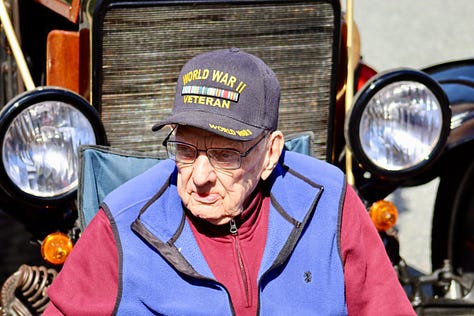
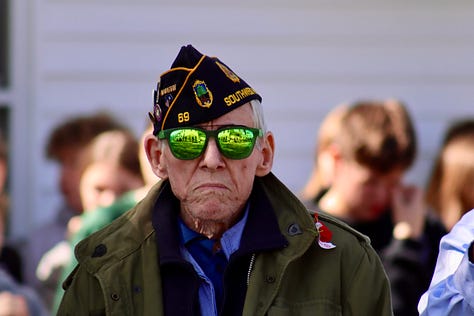
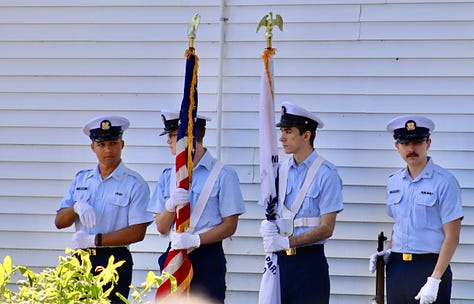
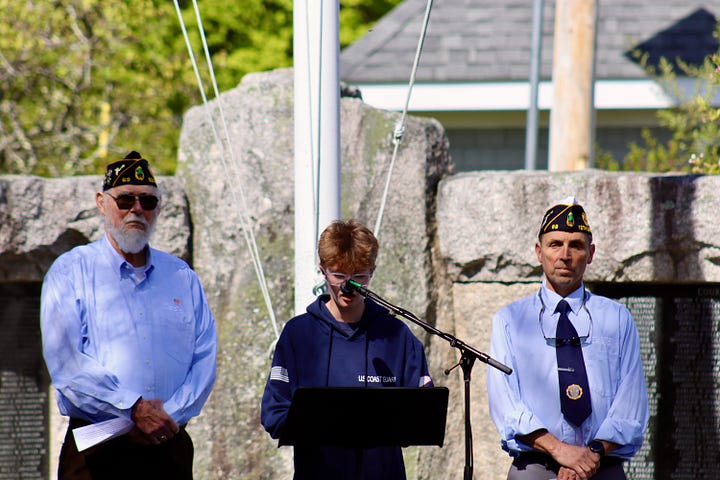
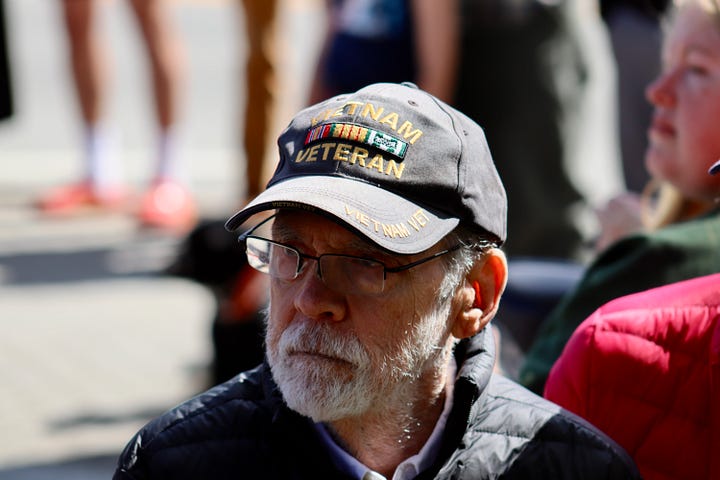
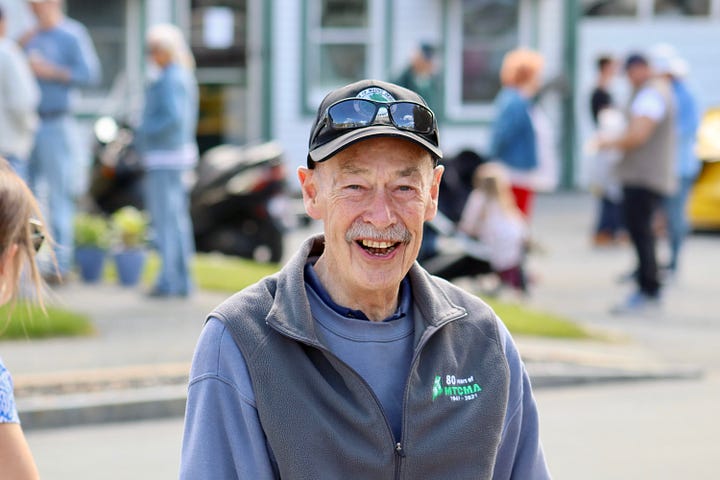
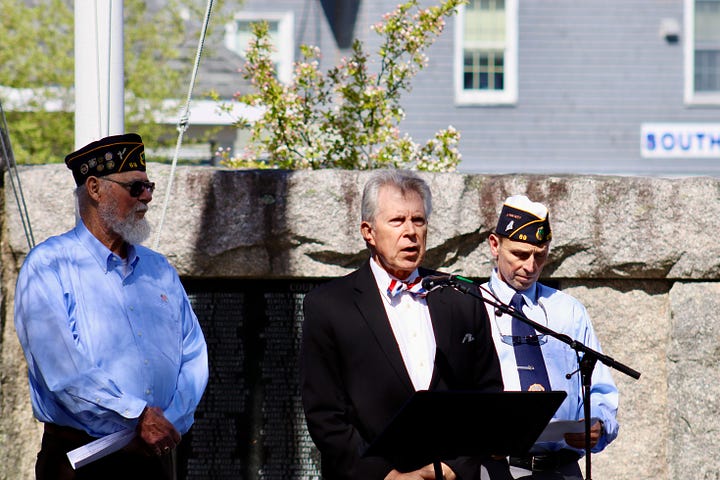
According to a NYT article by Livia Albeck-Ripka, “The holiday grew out of the Civil War, as Americans — Northern, Southern, Black and white — struggled to honor the staggering numbers of dead soldiers, at least 2 percent of the U.S. population at the time. Several places lay claim to being the birthplace of Memorial Day. One of the earliest accounts comes from Boalsburg, Pa., where, in October 1864, three women are said to have placed flowers and wreaths on the graves of men who had died serving the Union during the Civil War.”
The Civil War dead were almost everywhere, in towns and cities across the United States. The observances were called Decoration Day and had an official start in 1868 when Gen. John A. Logan wanted a day to honor those who had died in the war. As there were more and more conflicts and wars there were more dead. Eventually, the day became for those who died serving the country, not just those who died in the Civil War.
Mr. Logan wrote that the day should be “designated for the purpose of strewing with flowers or otherwise decorating the graves of comrades who died in defense of their country.”
The tradition continues.
Remember Those Who Served and Those Who Have Died
Even when there is a parade, Memorial Day is often something more quiet than other national holidays. A boy might brush the dust off an aunt’s grave. A flag is planted next to a tomb. A wreath is thrown into the water as flags are flown high. One high school student might sing a song on a pier.
When I first realized what Memorial Day really meant, I was in Manchester, New Hampshire. One of my dads never talked about his service in World War II. He was a quiet man with an easy laugh. He was the kind of man who always could do anything. That’s how it seemed to me. He hardly ever cried, hardly ever got mad. He liked fishing and building. He liked coffee and cigarettes and steamers. He loved his family and his friends and his boat.
He wasn’t the kind of man who cried.
I saw him do it twice. The first time was when his brother, Freddie, died all the way down in Florida. The second time was on Memorial Day.
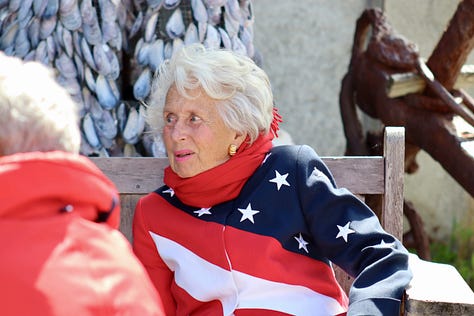
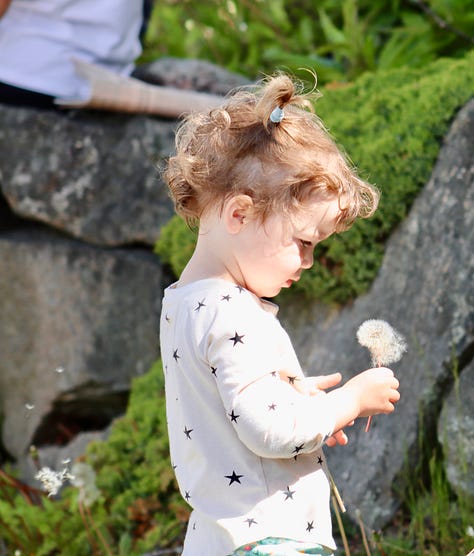
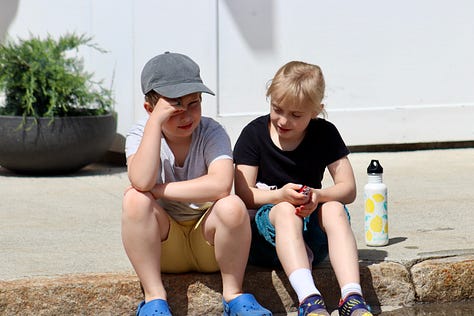
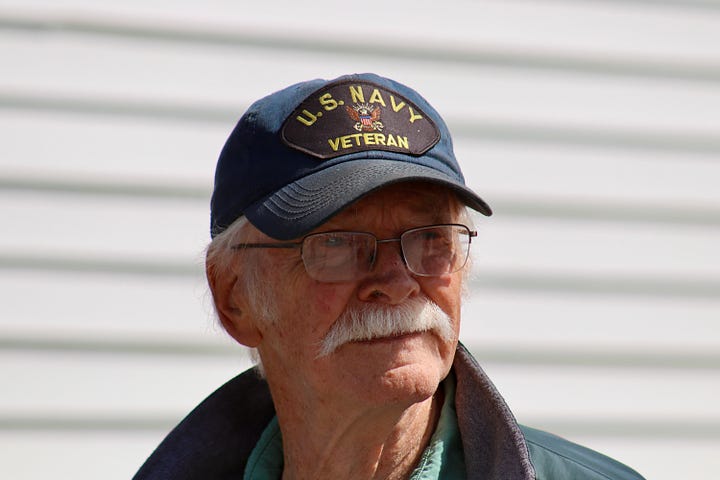


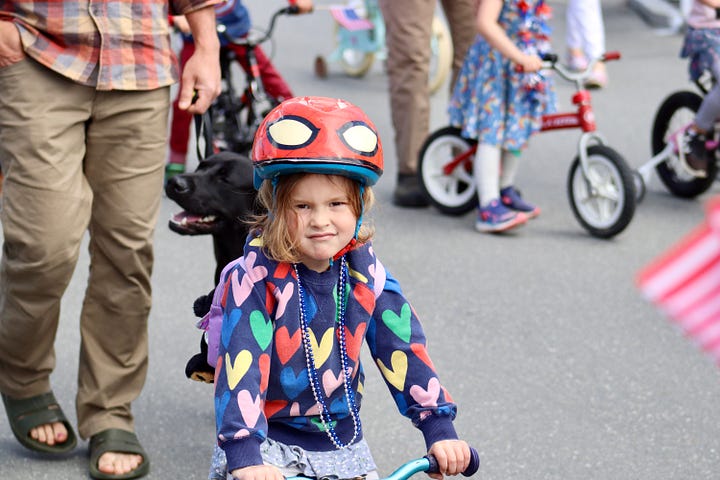
We were at a parade. The veterans were marching. My dad never marched with them. I don’t know why. A high school band was playing the Battle Hymn of the Republic. I was holding my dad’s hand and all of a sudden he let go. My hand dangled empty. He turned away, took three steps back from the crowd of the road, and faced the buildings.
“Daddy?”
He pressed his fingers into his eyelids. He nodded once. “What sweetie?”
“Are you okay?”
He wiped his eyes just once with the back of his hand. “Yeah, I’m okay.”
“Are you sad?”
He half-shrugged. “A little bit.”
I’d only just really learned what the Memorial Day parade was about. From school I knew it was about soldiers who died in war. I knew my dad had been in a war, a big war. I made the connection.
“Did you have soldier friends who died?” I asked.
“A lot, baby. A lot.”
Our fingers found each other. We walked back to the crowd.
“I’m sorry,” I said.
“Me too.”
Memorial Day Is About More
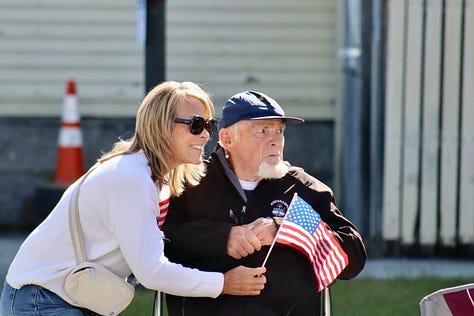
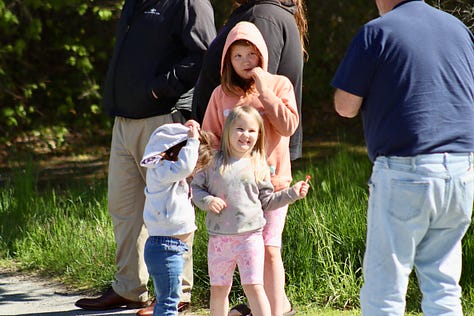
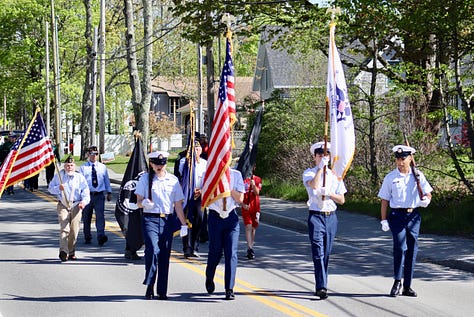
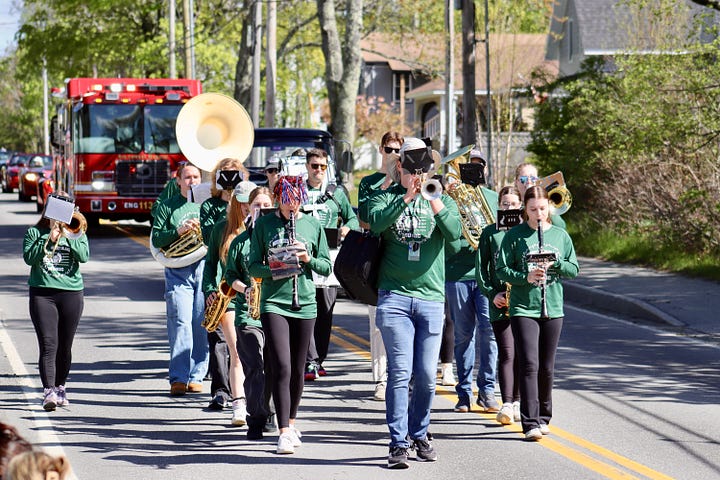

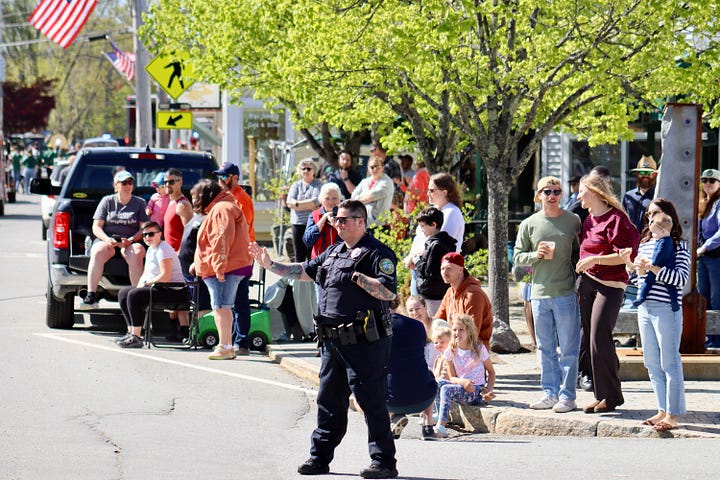
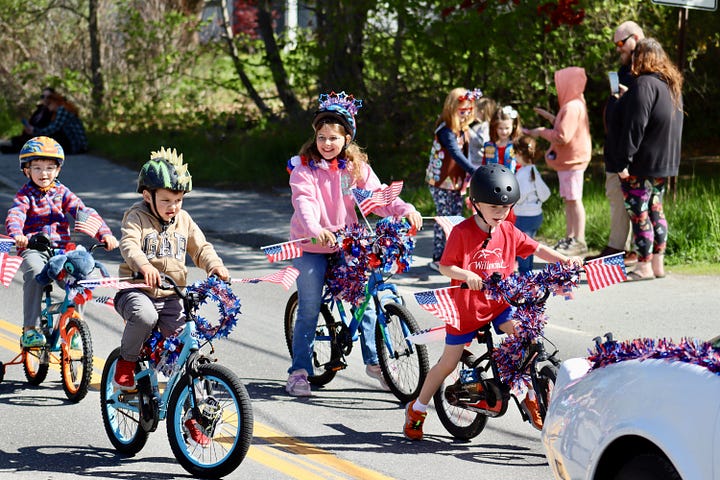
Memorial Day began as Decoration Day after the Civil War. It earned federal holiday status in 1971. Memorial Day is more than the beginning of the summer vacation season. It’s more than a day off of work and school. Memorial Day is about the friends, husbands, wives, lovers, children, brothers, and sisters who didn’t make it home.
Well over a million Americans have died while serving the United States. Each of them had homes. Each of them had stories cut short by war.
Seven Handsome Otis Men
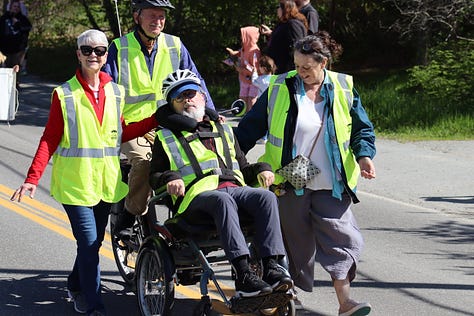
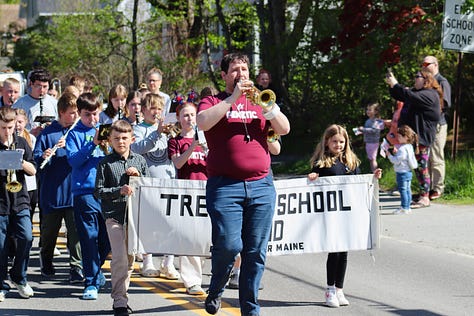
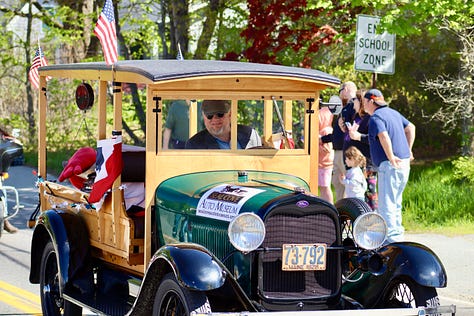
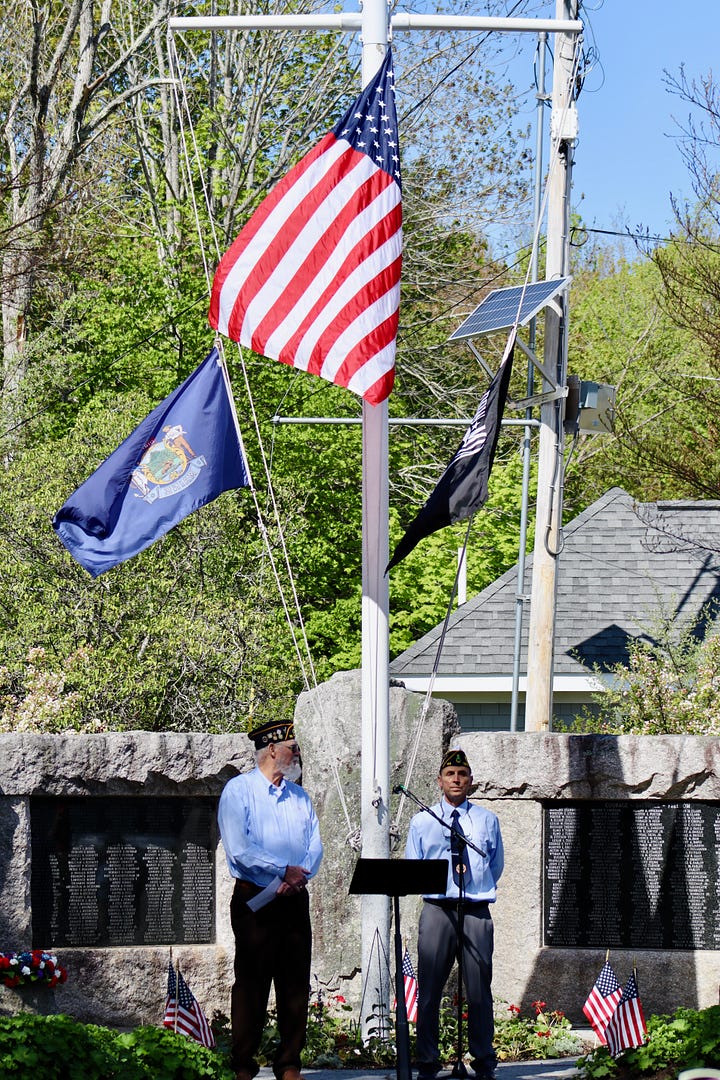
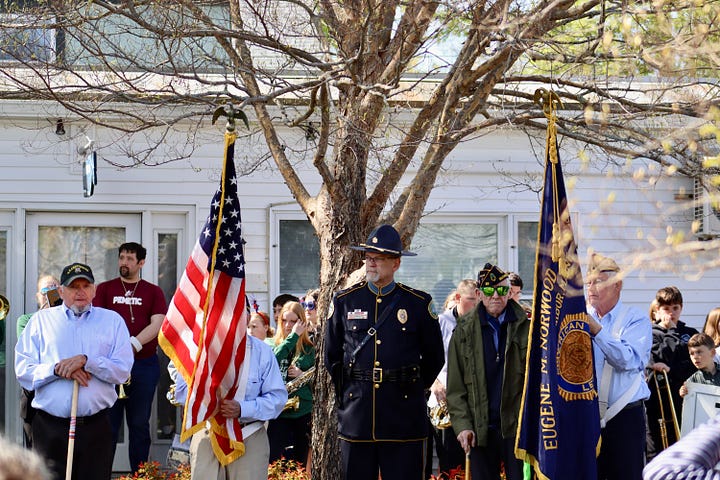
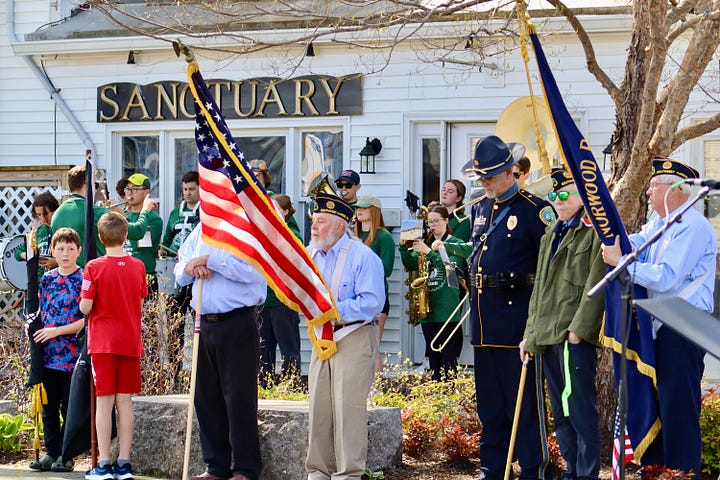
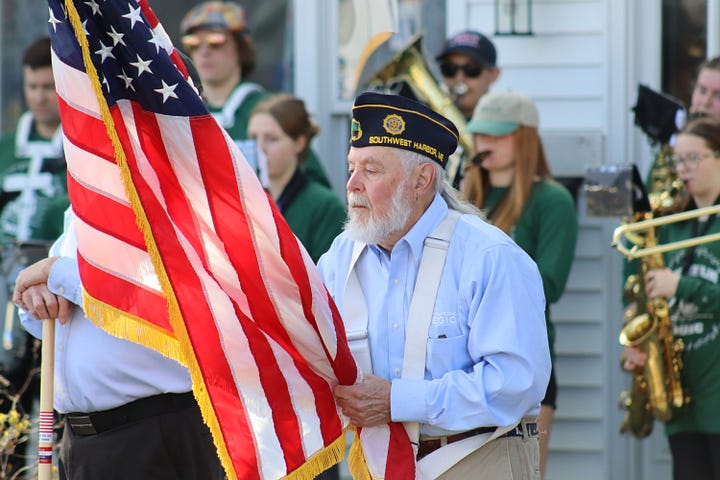
Sometimes soldiers make it back. Sometimes pieces of them stay behind. And sometimes while they are away, communities hold their collective breath when they return.
There weren’t a lot of people at the Otis town meeting back in 2010, but you could tell that they were a patriotic bunch. They filed into the Beech Hill School, one Saturday morning, sat in the folding chairs and waited for the meeting to start. There were a few flag lapel pins. There was a gentle hum in the air, but I was having a hard time focusing.
On the front of the Otis Annual Report were the pictures of seven handsome men.
Some of them were smiling at the camera.
Some of them looked serious.
But these sons of Otis had a couple things in common:
All of them looked proud.
All of them were in uniform.
All of them weren’t home.
The faces of Michael Manheim, Justin Smith, Steven Wiesner, William Dunn, Ike King, Joseph Cammack, and Jason Fishburn stared back at the voters. Michael and Steven were in the Navy. Justin and Joseph were in the Army. Jason was a Marine. William was in the Air National Guard and Ike was in the US Air Force.
Just seeing their pictures made some eyes tear up a little bit. Just seeing their pictures made some murmur and talk about how these Otis young adults made the stories of their lives about service, about putting everything on the line for us, all of us, even the politicians.
The Otis Annual Report read, “Let’s Honor Our Local Soldiers…. No matter where you are serving, our thoughts and prayers are with you.”
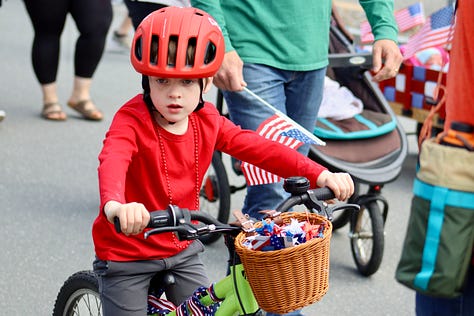
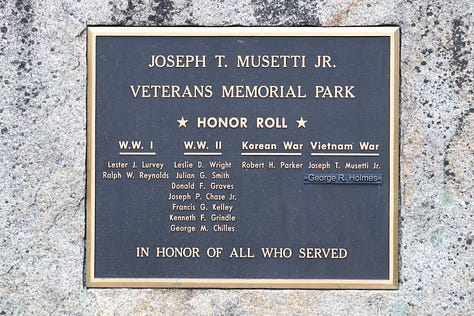
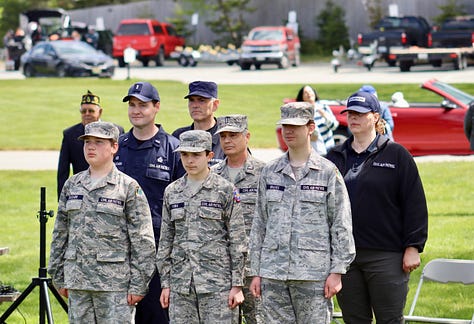
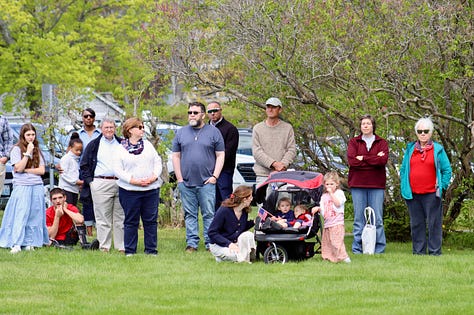
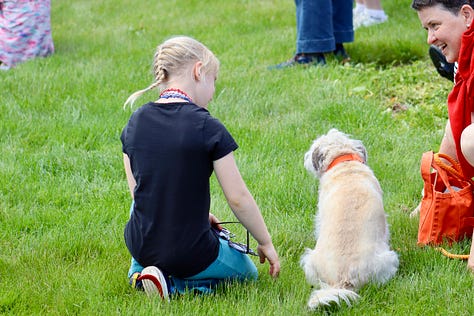
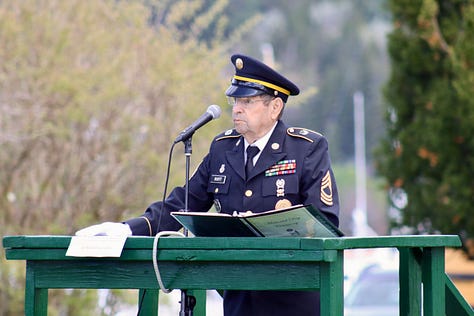
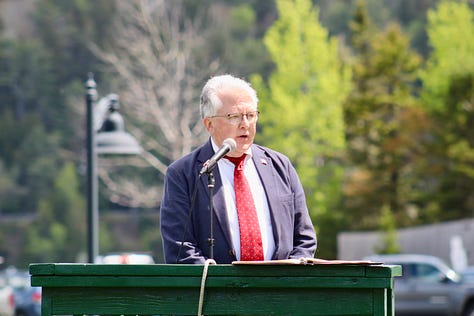
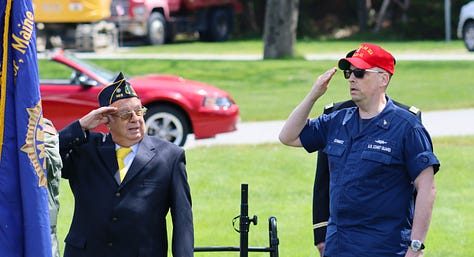
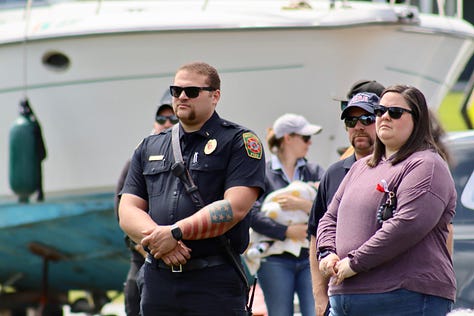
Town meetings, though occasionally cantankerous, are part of what makes New England government and communities special. We wouldn’t have that though if it weren’t for people like Michael, Justin, Steven, William, Ike, Joseph, and Jason. Without them (and the men and women before them) risking their lives, leaving their families, working 24-7 in dangerous places, there could potentially not even be freedom of the press.
These men were heroes, real heroes.
On that Saturday morning we all saw their faces and I realized how my story, and the story of Otis, and the story of Bar Harbor, and Mount Desert Island, and Ellsworth, and of the Wabanaki, and all of our communities, would be different if it wasn’t for men and women like them.
Memorial Day is Personal
Many of us have relatives or friends or community members who have served. We may not know all of their stories, but we know some. A lot of our loved ones have lost fellow service people.
I know Em's story by heart because that soldier, that officer actually, is my daughter and she is currently deployed overseas. I know all the bits of her life that make her something much bigger than a demographic or a statistic. The same thing goes for former Bar Harbor firefighter Josh Farrar who has deployed multiple times. They are two family members with incredibly different stories, but who both served and both know fellow soldiers who have died.
The Bar Harbor Story had features about Bob Lombardi last year, about Robert Moore, but there are so many stories of Mount Desert Island soldiers still yet to be told.


Not all soldiers are alike and neither are their narratives. But many of them were, and are, willing to stand for a Constitution and way of life that they believe in so much that they'll battle for it and even die for it.
The least we can do is fight for it in our own ways, too, make it better, preserve its best parts, and build it up together. The least we can do is remember the sacrifices that have happened, the deaths, the potential for more deaths.
I don’t know how I can ever say thank you to all our veterans, but I know that I have to try now and keep trying, possibly for the rest of my life.
I don’t know how I can honor the grief of all of those families and friends who have lost someone to war.
But the least we can do is notice the lack of a parade or stand there in silence as a wreath is thrown. The least we can do is notice a memorial on Cottage Street in Bar Harbor just past the grocery store. The least we can do is gather together: walking and witnessing. I hope you’ll join me in that, in the noticing and in the remembering.
So, thank you, Michael, Justin, Steven, William, Ike, Joseph, and Jason.
And Em and Josh and Jai.
And Bob and Robert.
Dr. Dwayne Tomah’s ancestors.
And all of the people who fought and defended this land before they were even allowed to vote.
Thank you to all the men and women whose names I do not know and those whose names I do know. Thank you. And thank you to all of those whose families and friends have endured the greatest of losses. Thank you, too.
MEMORIAL DAY OBSERVANCES AND EVENTS ON THE ISLAND
Bar Harbor
Back in 1957, Bar Harbor had a parade, sponsored by the George Edwin Kirk Post of the American Legion that marched down Cottage Street to Main Street and to the pier and back up Main Street to Mount Desert Street and back to the Legion.
This year, the memorial day ceremony began at 10 a.m., Monday, on the Village Green. Matt Horton, a Bar Harbor Fire Department lieutenant, read a poem by Jai Higgins, veteran and retired firefighter. Before Lt. Horton did, he placed the dog tags of one of his close relatives around his neck.
Nearby, someone broke into tears.
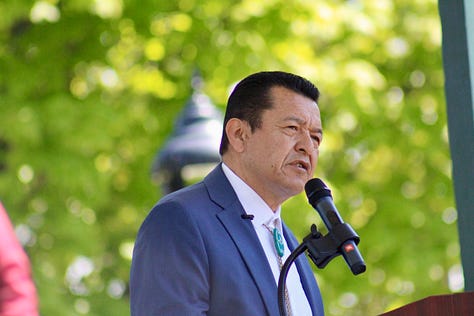
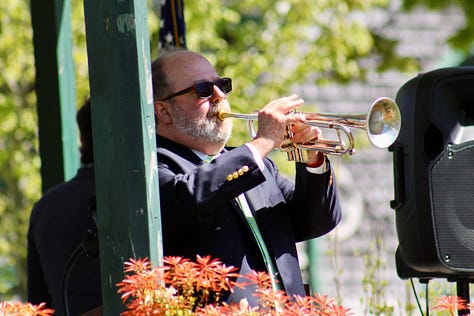
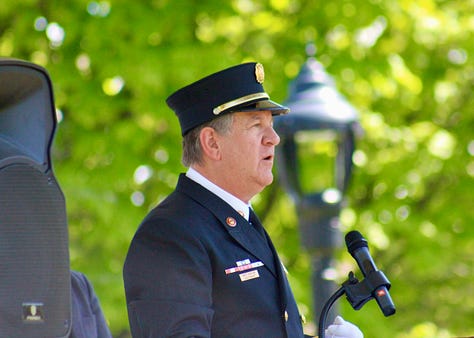
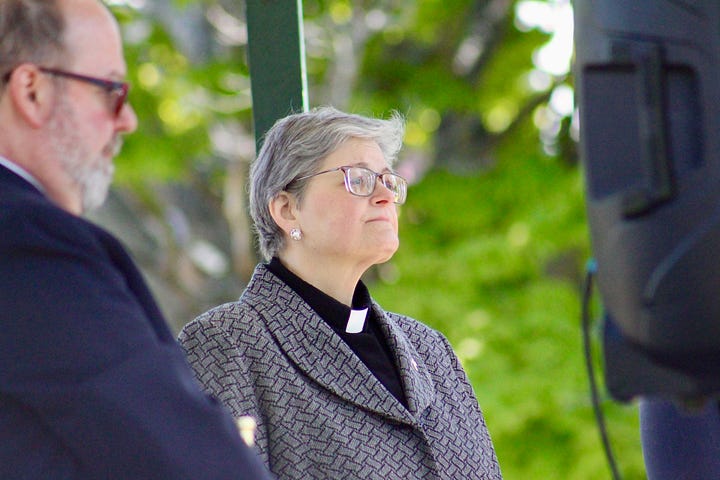
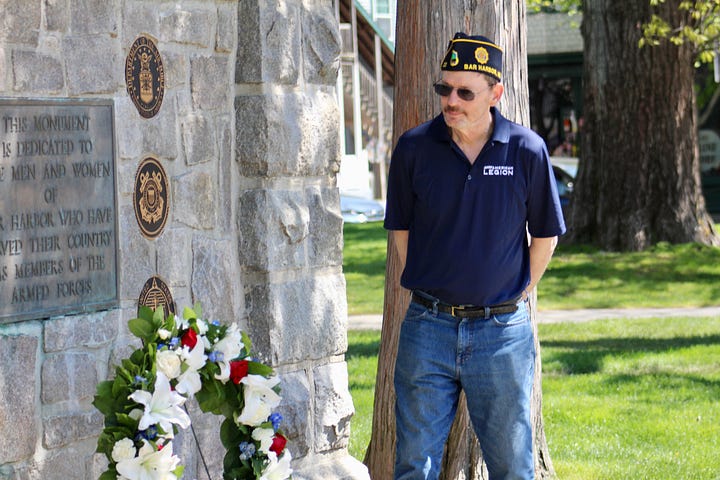
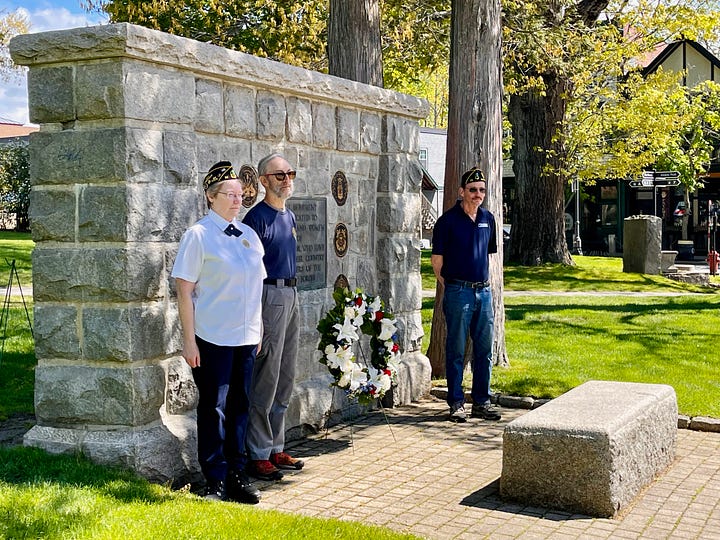
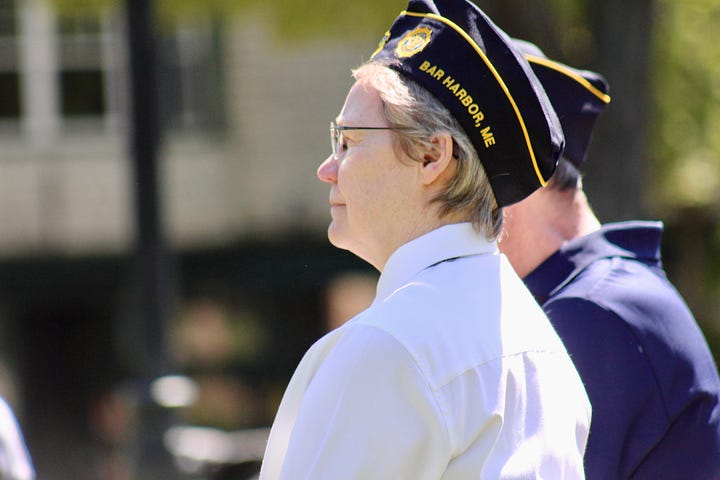
Dr. Dwayne Tomah, a Passamaquoddy language keeper, storyteller, and cultural preservationist, spoke to the crowd gathered, saying he was honored to recognize the Passamaquoddy’s contribution to the country and those who sacrificed their lives and bravery and those who stood side by side with each other.
“All of us,” he said.
They came from all of us.
He mentioned two men who died in World War One; they were ancestors.
“There are many, many more,” he said.
Many of them fought for a country that they weren’t even allowed to vote in, he stressed.
The Bar Harbor Garden Club hosted another observance at 10:30 at the Blue Star Memorial Marker, which is a yearly tradition.
According to the club, “The Blue Star Program honors all the men and women that serve in the United States Armed Services. This program began with the planting of 8,000 dogwood trees by the New Jersey Council of Garden Clubs in 1944 as a living memorial to veterans of World War II. In 1945, the National Council of State Garden Clubs adopted this program and began a Blue Star Highway system. BHGC stewards the Blue Star Marker in Bar Harbor and holds a ceremony every year on Memorial Day.”
Northeast Harbor
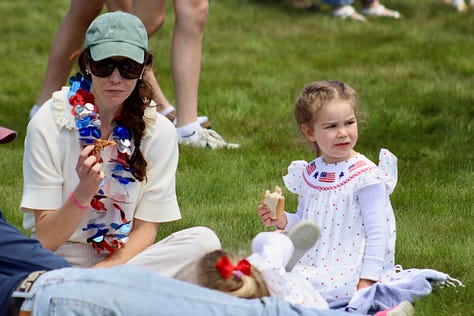
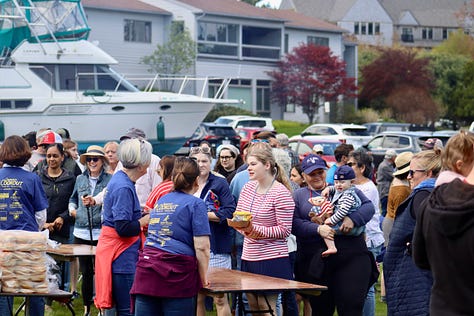
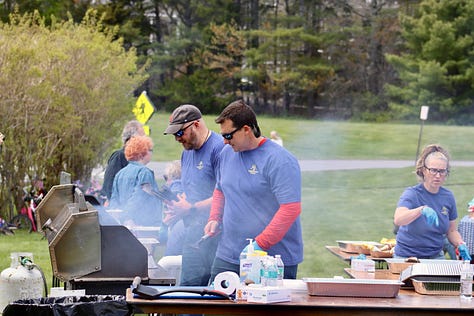
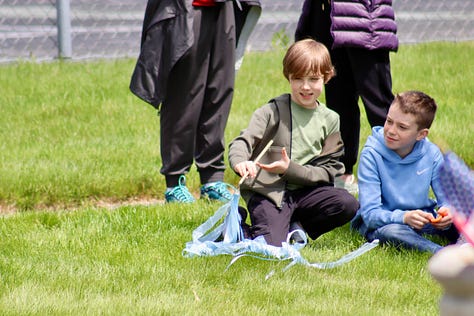
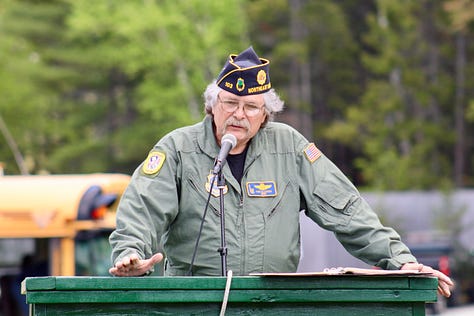
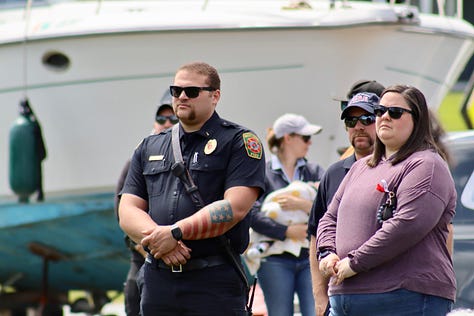
The American Legion Lurvey-Wright Post #103 organized the ceremonies and parade on Monday and Veterans Memorial ceremony at the Northeast Harbor Marina, which was followed by a cook-out and book sale. That book sale at the Northeast Harbor Library will continue tomorrow.
And so will the stories of the community gathered at the cookout hosted by the Neighborhood House, listening to the speakers, hearing the music, making moments and stories even as they remember those who are no longer here making moments and stories with them.
Memorial Day is about the fallen, but it’s also about what they’ve fallen for.
Southwest Harbor and Tremont
After a fun run and bike decorating, the town’s Memorial Day parade began at 9 a.m., at Main Street and Seal Cove Road. Ceremonies began at the parade’s end at the village green. It was sponsored by the American Legion Auxiliary Eugene M. Norwood Post #69.
At the ceremony, Liberty Gray, a student at Pemetic Elementary School, wasn’t quite ready to read her words about Memorial Day to the crowd attending. However, her thoughts were still heard as an adult took to the podium and read.
“It’s a day to celebrate our freedom,” Liberty wrote.
But it’s more than that, she wrote, it’s a day to remember.
“Memorial Day means a lot to me because all soldiers are very brave and kind hearted to be willing to risk their lives for America and the people who live here,” Liberty wrote.
Each year her family goes to relatives graves. They bring flowers and flags with them. They place them on each grave and remember.
Barbecues and parades help people remember them and their sacrifice for freedom and peace, Liberty wrote. They tend to the graves of the fallen.
And that’s important.
She quoted Mary Roach who wrote in her book, Grunt: The Curious Science of Humans at War, “Heroism doesn’t always happen in a burst of glory. Sometimes small triumphs and large hearts change the course of history.”
Sometimes it’s about letting people hear your words in a world that might not want to hear them. Sometimes it’s about saving another person’s life via a huge sacrifice or a small one. But always, always, it’s about community lifting each other up, supporting each other when things go wrong, and about care.
ABOUT US AND YOU.
Thanks for reading this article! All our posts are free because we want to make sure that everyone always has access to their local news, so feel free to share it if you want.
If you’d like to donate to help support us, you can, but no pressure! Just click here.
*Some of this story originally appeared in 2024.
**There are photos within the videos uploaded here. If you’re in one of them and you’d like a copy, just let us know!
Photos and video: Shaun Farrar and Carrie Jones/Bar Harbor Story. Shaun Farrar also assisted in gathering information for this article.





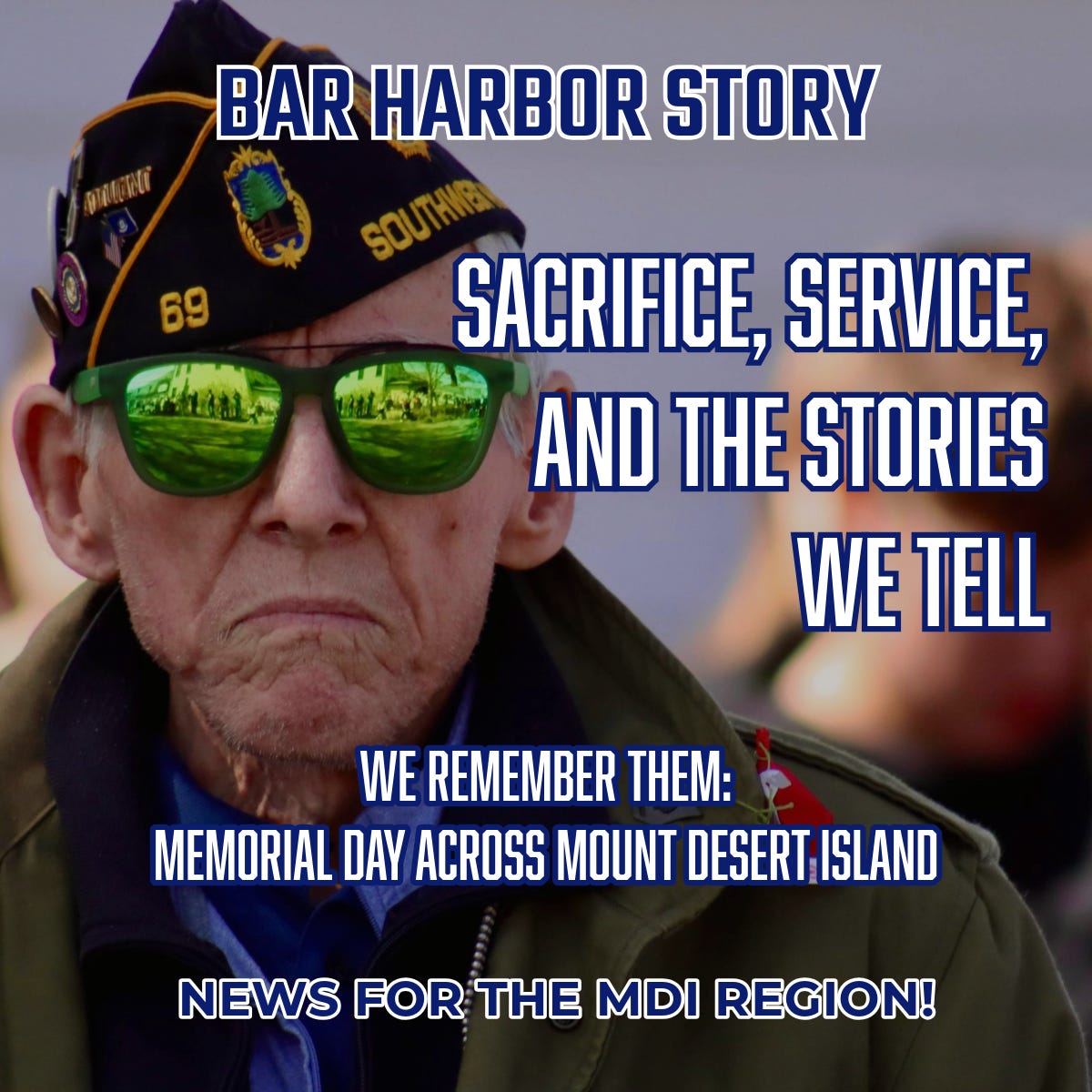




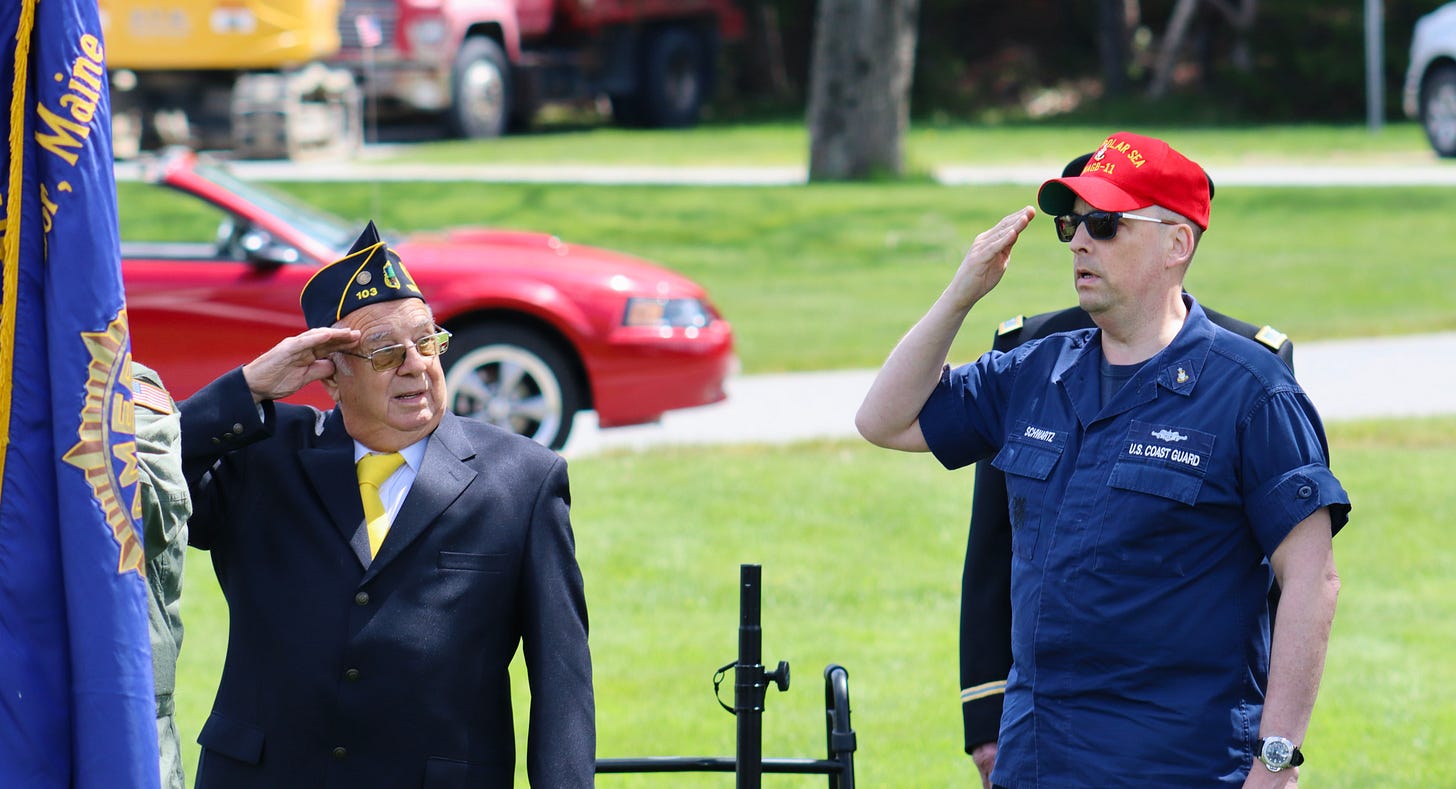
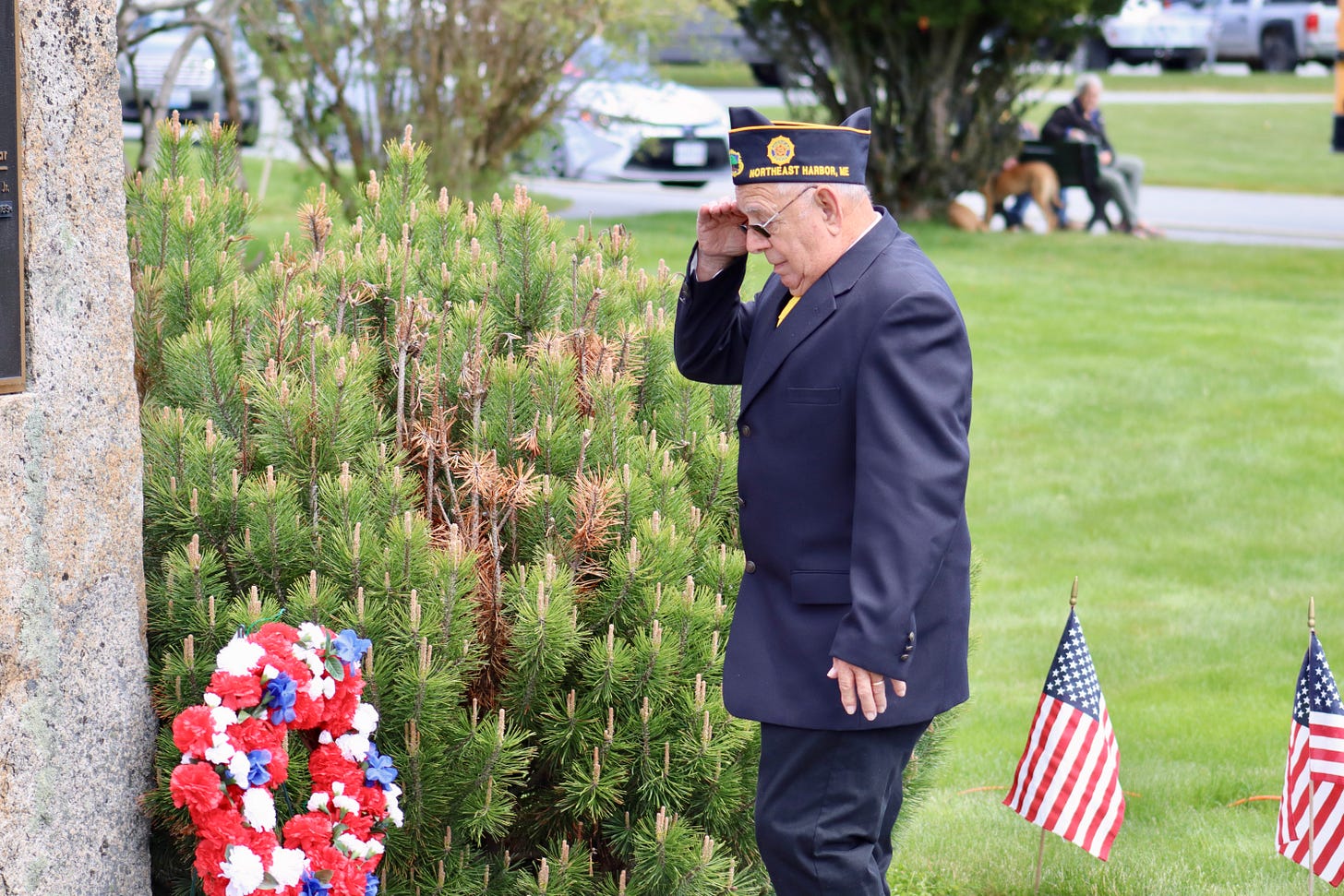
What a thoughtful, uplifting and beautifully-written story, Carrie. Great pictures, too. A superb reminder of what we need to hold dear and appreciate without reservation in these times. Thank you once again for such excellent journalism, and sharing your own part and meaning with us. Anne
Beautiful article and photos.